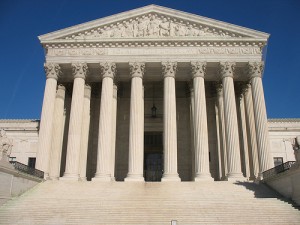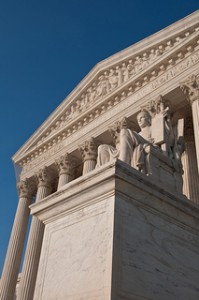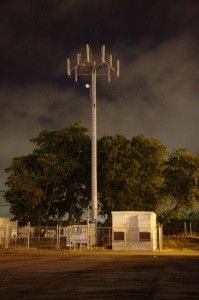Posted
16 Sep 2014 in Case Notes, Commentary
While the Supreme Court’s next term officially begins on October 6, its “long conference” is September 29. At this conference the Court will review a backlog of petitions that have been piling up over the summer.
SCOTUSblog complies a
list of petitions that it thinks have a reasonable chance of being granted. Eight of the petitions the Court will consider either during the “long conference” or at a later conference directly involve or impact local governments.
 Public nuisance
Public nuisance. A Brighton, Michigan, ordinance presumes that an unsafe structure will be demolished as a public nuisance if the cost of repairing it exceeds its value. The owner has no right to repair the structure. Brighton property owners wanted to repair two unsafe structures even though Brighton estimated it would cost almost double the property value do so. In
Bonner v. City of Brighton, Michigan, the property owners claim the ordinance violates substantive and procedural due process.
Employment. Under federal employment law to bring a discrimination claim a plaintiff must prove that an “adverse action” occurred, and to bring a retaliation claim a plaintiff must prove a “materially adverse action” occurred. The question in
Kalamazoo County Road Commission v. Deleon is whether either can be proven when an employer grants an employee’s request for a job transfer (and the new position turns out to be less desirable than the old position). The International Municipal Lawyers Association (IMLA) filed an
amicus brief in this case.
 Rail carriers (railroads) in Alabama pay a four percent sales tax on diesel fuel. Motor carriers (trucks) pay an excise tax of 19-cents per gallon and no sales tax. The Railroad Revitalization and Regulatory Reform Act (4-R) prohibits state and local governments from imposing taxes that discriminate against railroads. Since CSX filed its complaint, railroads paid less in sales tax than trucks paid in excise tax. But, the Eleventh Circuit refused to compare the total taxation of railroads and trucks to avoid the “Sisyphean burden of evaluating the fairness of the State's overall tax structure.” Instead it concluded Alabama’s sales tax on railroads violates 4-R because Alabama’s competitors don’t pay it.
The SLLC brief argues that given state’s traditional power to tax the Court should interpret 4-R narrowly. The brief suggests the Court could take three approaches to rule in favor of Alabama.
Rail carriers (railroads) in Alabama pay a four percent sales tax on diesel fuel. Motor carriers (trucks) pay an excise tax of 19-cents per gallon and no sales tax. The Railroad Revitalization and Regulatory Reform Act (4-R) prohibits state and local governments from imposing taxes that discriminate against railroads. Since CSX filed its complaint, railroads paid less in sales tax than trucks paid in excise tax. But, the Eleventh Circuit refused to compare the total taxation of railroads and trucks to avoid the “Sisyphean burden of evaluating the fairness of the State's overall tax structure.” Instead it concluded Alabama’s sales tax on railroads violates 4-R because Alabama’s competitors don’t pay it.
The SLLC brief argues that given state’s traditional power to tax the Court should interpret 4-R narrowly. The brief suggests the Court could take three approaches to rule in favor of Alabama.







 By Lisa Soronen [We are thrilled to have a guest post from Lisa Soronen, executive director of the
By Lisa Soronen [We are thrilled to have a guest post from Lisa Soronen, executive director of the 
